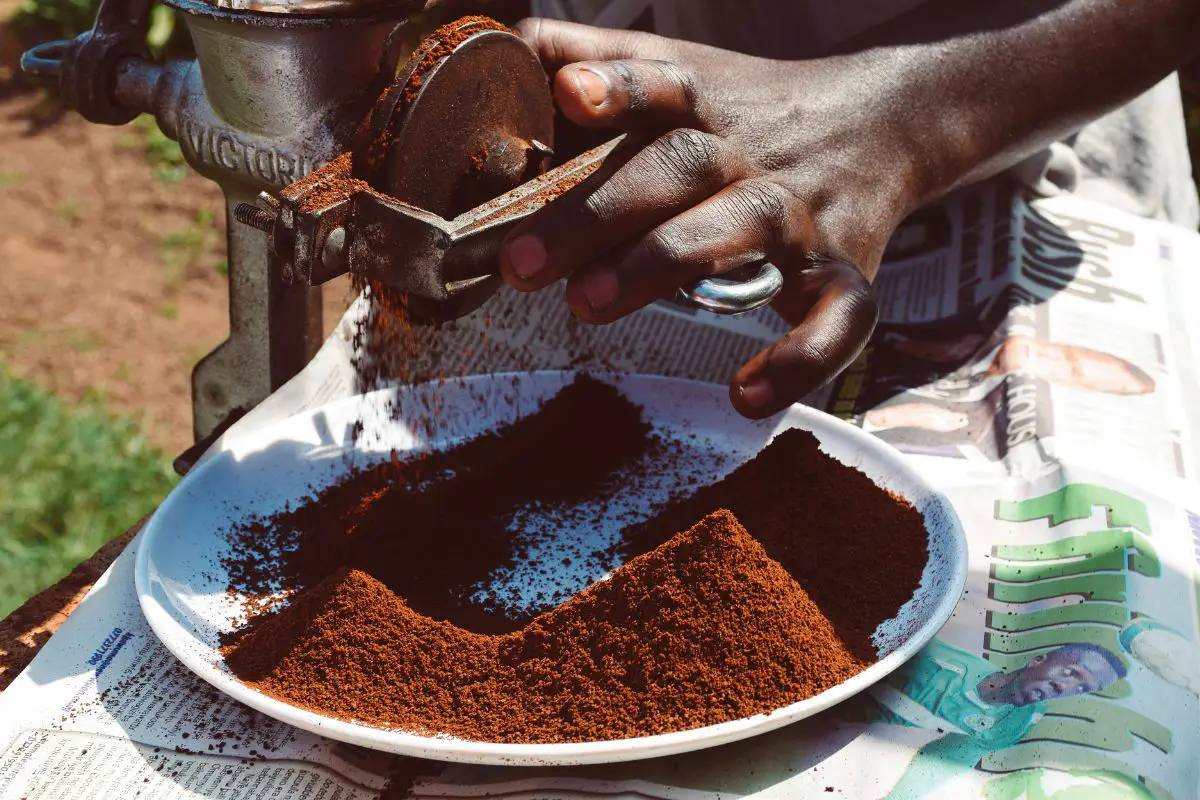The grind size of coffee is an extremely important variable when coffee brewing. Controlling the grind size makes it possible to brew better-tasting coffee. When you grind coffee beans perfectly, you will make consistent brews. Also, knowing how to grind beans into specific sizes allows you to experiment with different recipes.
Unfortunately, some coffee brewers are often let down by coffee grind size. If you make the mistake of using the wrong grind size or use inconsistent grinds, you will get bad-tasting coffee. Probably, your coffer will be bitter or sour, or you will find it challenging to recreate perfect cups of coffee. But why does grind size matter when brewing coffee? It is all about permeability. So how does grind size affect the permeability of the coffee grounds? Read on to find out.

What Determines Permeability?
Permeability is a measurement that determines the ability of particles, such as ground coffee, to allow a fluid to pass through. Permeability controls the rate at which water flows through coffee grounds, such as through the coffee bed in an espresso machine. According to Darcy’s Law, the flow rate is directly proportional to permeability at a given pressure. That means if you double the permeability of coffee grounds, you double the flow.
The permeability of ground coffee depends on two key variables, which are the way ground coffee particles are packed together and the distribution of the particles. For a certain grind size, the permeability is affected by the density of the ground coffee. Small changes in how densely they are packed have a huge effect on their permeability.
For instance, if you increase the density of packed ground coffee by 20 percent, you will experience a decrease in the flow rate by a factor of about five. Thus, it is important to have good distribution when packing ground coffee in a coffee filter, especially when using an espresso maker. A slight unevenness in density may result in uneven flow, hence an unbalanced brew.
How Permeability Affects Coffee Extraction and Flavor
When brewing coffee, your goal is to control the extraction process. The final flavor you will get in your brew will depend on the number of coffee compounds extracted from ground coffee. It is an extremely delicate balance of grind size, water-to-coffee ratio, water temperature, and brew time.
When grinding roasted coffee beans, the idea is to increase their surface area such that more particles come into contact with water for maximum extraction. When the grounds are finer, there is increased surface area that comes into contact with water, and water moves between the particles slowly.
Thus, finer grounds require less brewing time while coarser grounds require more brewing time. With coarser grounds, water moves between the particles more quickly but there is reduced rate of extraction, hence more brewing time.
If your brew tastes sour, there is under-extraction due to a larger grind size than necessary for the particular brewing method. In that case, try a finer grind. On the other hand, if your brew tastes bitter, there is over-extraction. Hence, try a coarse grind for proper extraction.
What Determines the Ideal Permeability?
Permeability is mainly determined by the grind size. Essentially, an ideal grind size is hardly universal. It is personal preferences that always determine the perfect grind size. It is the same case for the type of coffee you are brewing based on variables such as the roast profile, origin, processing method, and variety. For instance, darker roasts are more soluble than lighter roasts. Thus, you need a little coarser grind for darker roasts and a little finer grind for lighter roasts.
Regardless, different grind sizes are ideal for different brewing methods. For instance, brewing with a French press works best with a coarser grind. Most pour-overs, apart from the Chemex, work best with medium-fine grinds. Turkish coffee requires extra-fine grinds while espresso comes out best with fine grinds. Some brewers such as the AeroPress work with different grind sizes.
The age of your coffee also plays a significant role in determining the ideal grind size and permeability. Freshly roasted beans work best with the recommended recipe. However, as the coffee ages, you will have to tweak the standard recipe. The reason is that coffee flavor fades over time. Thus, aged coffee works better with finer grounds.
You can also alter the recipe by increasing the amount of coffee in the ratio and using a coarser grind size. A finer grind reduces permeability but increases extraction. A coarser grind increases permeability and more grounds than usual increase intensity.
How Consistency of Ground Coffee Affects Permeability
Regardless of the coffee grinder you use, inconsistency in the grind size can be a major problem. If you brew with ground coffee containing a mixture of smaller grinds (fines) and larger grinds (boulders), there will be mixed-up permeability. The permeability will be slower through the finer particles and faster through the coarser particles. Hence, the ground coffee will extract at varying rates.
As the larger particles under-extract, the smaller ones will over-extract. The result is an unpredictable extraction rate. Consequently, your coffee will taste muddled. You will find it challenging to replicate the recipe.
Coffee aficionados recommend using burr grinders instead of blade grinders. Burr grinders offer more consistent grinds than blade grinders. With consistent grounds, there is uniform permeability, hence uniform extraction and a balanced brew.
Final Thoughts
When pursuing high-quality or specialty coffee, all variables that come into play during extraction matter. By getting the grind size and consistency right, there is uniform permeability. That way, you will find it easier to brew coffee recipes according to your preferences. Also, you can experiment with different coffee variables and get consistent brews all the time. So how does grind size affect the permeability of the coffee grounds? In summary, coarser grinds increase permeability while finer grinds reduce permeability.